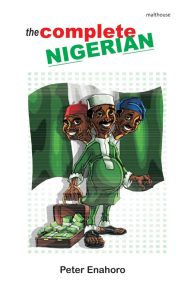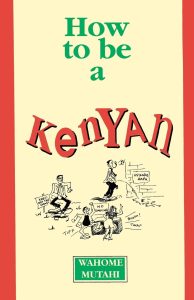Publisher: Spectrum Books, Nigeria
This famous little book is one of the funniest to come out of Africa. First published in 1996, it continues to be in demand. The Nigerian author turns a humorous and ironic eye on his fellow compatriots.
The book is descibed as a guide for Nigerians and expatriates on the conduct, deportment, comportment, bearing, deameanour, mien, carriage, actions, the misdoings, misconduct and misbehaviours of the Nigerian adult male and female. Sprinkled with anecdotes and cartoons, the book addresses the Nigerian essence.
£21.00
About the author
Peter Enahoro, under the popular pen-name, Peter Pan,is perhaps Africa’s
best known international journalist. He is a widely quoted political
commentator and a distinguished publisher. His works have covered most
of Africa’s major events of the last four decades. Not only has he
travelled extensively in Africa; his career has also taken him all over
the world. Born into a famous political family, Peter Enahoro became the
youngest national newspaper editor in his twenties, during the heady
days of the First Republic. His brilliant and courageous columns won him
the admiration even of those at the receiving end of his witty satires.
Peter Enahoro went into self-exile in Europe in 1966 and spent the
years in Germany, Belgium and the United Kingdom; but he never lost
touch with the African continent. He met and married Susanne in Cologne.
They have two sons. His keen sense of humour is best illustrated in his
earlier book, How To Be A Nigerian. Peter Enahoro returned to his
homeland in March 1992. The Complete Nigerian was written within months
of his arrival. Its quality, filled as ever with his sharp observations
of the sparkling idiosyncrasies, indiscretions and contradictions of the
Nigerian character, shows that Peter Enahoro has lost nothing of his
sensitivity to the peculiarities and joie de vivre of his feJlow country
men and women.


